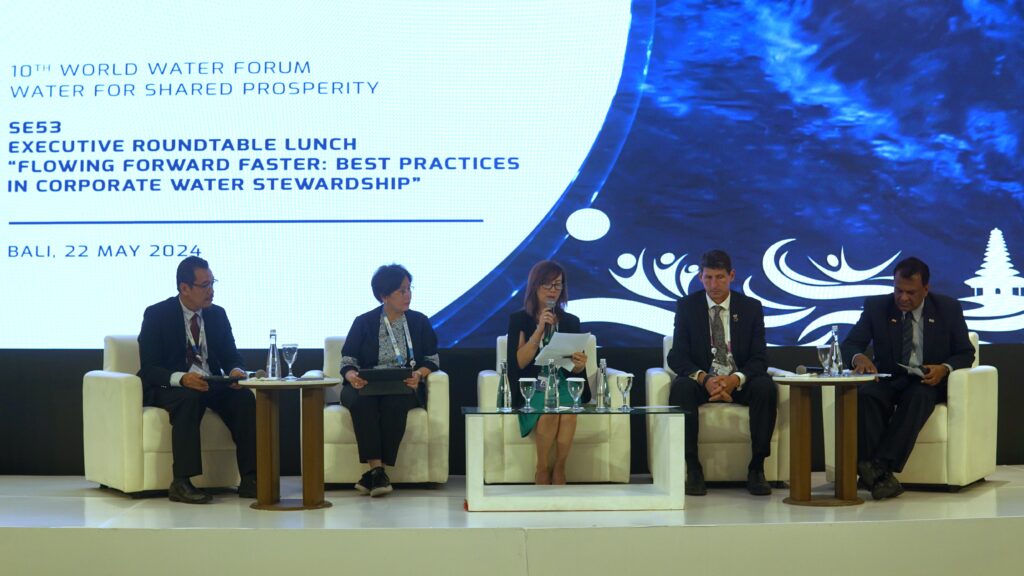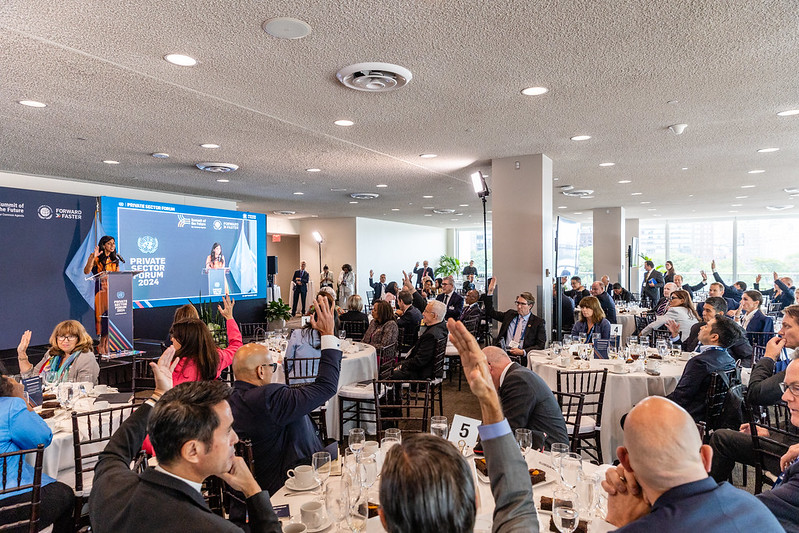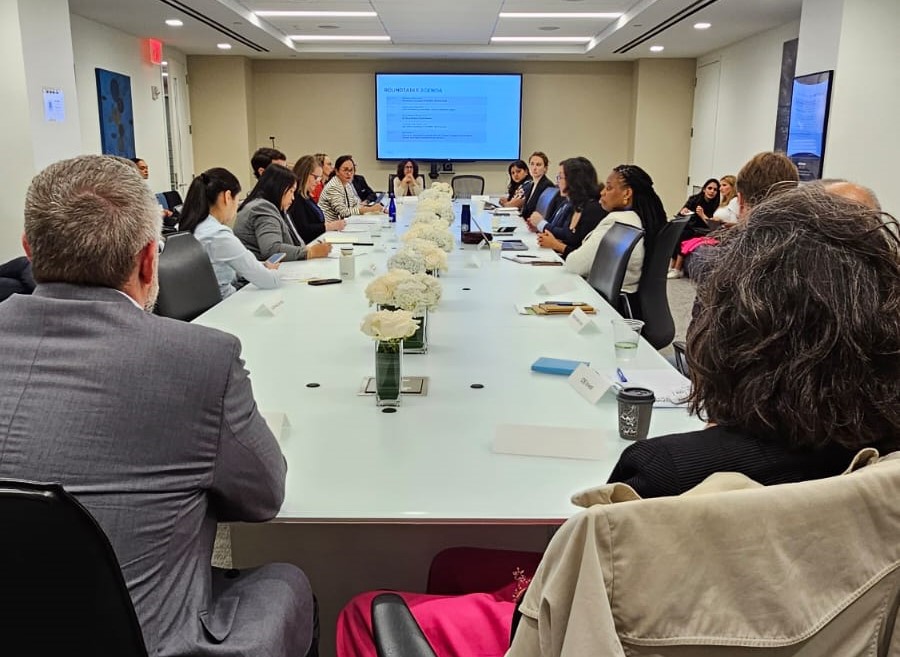
22 May 2024 – Indonesia Global Compact Networks (“ÏGCN”) holds an Insightful dialogue session on effective corporate water management and water sustainability efforts during the 10th World Water Forum, in Bali. Under the theme of “Flowing Forward Faster: Best Practices in Corporate Water Stewardship,” the discussion focuses on innovative strategies, impactful initiatives, and real-world case studies that reflect the United Nations Global Compact initiative called The CEO Water Mandate. The CEO Water Mandate is a special initiative established in 2007 to mobilize a critical mass of business leaders to address global water challenges through corporate water stewardship in partnership with the United Nations, governments, civil society, and other stakeholders.
This fruitful 90-minute dialog session is designed to delve into the best practices and successful journeys of leading organizations on corporate water stewardship. It includes discovering how companies are making a difference in water conservation, resource management, and community engagement to move forward faster in achieving corporate water resilience targets. The outcome of this dialog is to join forces and commit to implementing a good corporate water stewardship plan, having companies endorse the UN Global Compact CEO Water Mandate, and having the companies commit to the UN Global Compact Forward Faster initiative for achieving water resilience targets.
We are incredibly grateful for the Coca-Cola Europacific Partners (“CCEP Indonesia”), PT Pertamina (Persero) (“Pertamina”), and Kelani Valley Plantations PLC (“KVPL”) ongoing support and commitment to this dialogue session. Through their contributions, we can discover how companies are making a difference in water conservation, resource management, and community engagement to move forward faster in achieving corporate water resilience targets. Their patronage motivates us to keep improving, and we look forward to finding new ways to collaborate with them even better, in regard of water stewardship.
Josephine Satyono, Executive Director of IGCN, stated:
“IGCN is strongly committed to supporting the community’s vision for a clean, healthy, and sustainable environment. Freshwater is essential for businesses to operate and nature to thrive. Effective water management practices are critical to addressing the world’s growing water risks and to improve our resilience to the impacts of climate change. This need has never been greater, and despite the efforts made by governments, businesses, and communities, a lot of work remains to be done. With our joint commitment to the CEO Water Mandate, IGCN will ensure that freshwater ecosystems in Indonesia are protected and restored and water is sustainably managed, fully supporting the achievement of the United Nations’ Sustainable Development Goal,”
Suripno, Pjs. Senior Vice President Sustainability of Pertamina, stated:
“Given the increase in operational activities and population growth, the importance of water resources cannot be overstated. We are committed to using water efficiently and ensuring proper treatment of effluent to preserve this vital resource, in all Pertamina operations,’’
Dr. Roshan Rajadurai, Managing Director of Kelani Valley Plantations PLC, stated:
“As an agricultural operation, KVPL’s water footprint remains high. With natural surface water sources and rainwater being the main sources of water, the Company has put in place several initiatives to control usage where possible and practical. KVPL is concerned about the quality of the water of life. So we will continue to measure and manage our initiative in regard of water management,”
The world’s water challenges are a key driver of business risk worldwide and across a variety of industry sectors. According to the World Economic Forum, water crises have been among the top five global risks in each of the last seven years. Companies that fail to address the many water risks facing their business put themselves in danger of operational and supplier disruptions, higher operational costs, loss of legal or social license to operate, heightened absenteeism among workers, brand damage, and diminished investment. As such, managing risk is probably the most common and important reason more and more companies are implementing water stewardship in their operations and where possible throughout their value chains.





